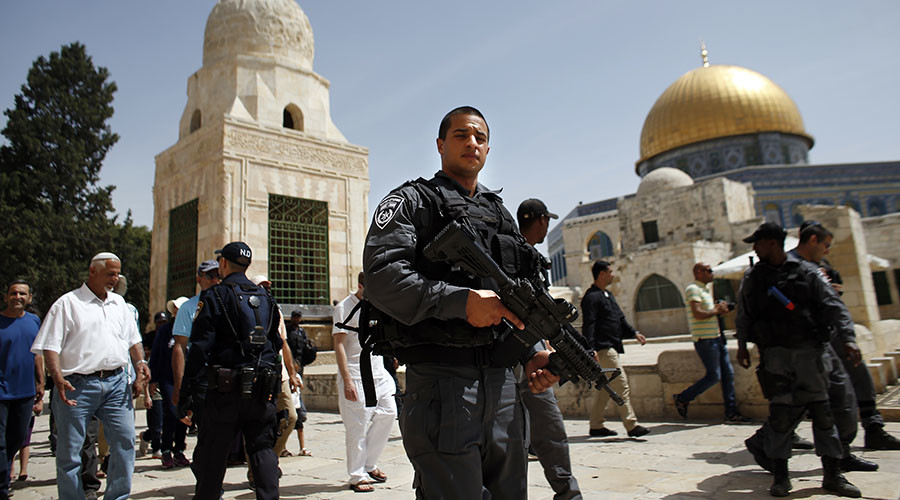Tear-gas used in al Aqsa
July 29, 2017 | Expert Insights

Over 100 Palestinians were injured as Israeli forces used tear gas on worshippers at the al Aqsa mosque in Jerusalem.
Thousands had returned to the holy site after two weeks of violent protests that left six Palestinians dead and hundreds injured.
Background
In July 2017, the Israeli government installed a number of security measures at the al Aqsa mosque in the Old City of Jerusalem. It is considered to be one of the holiest sites in Sunni Islam. The Kingdom of Jordan is in-charge of the site’s upkeep but Israel is allowed to patrol and conduct searches within its perimeter.
The new measures included a metal detector, railings and scaffolding where cameras were mounted. This aggrieved the Palestinians, who took to the streets to protest. They also stopped going to the mosque to pray.
The violence that broke out during this period resulted in the deaths of six Palestinians. Israeli forces used rubber coated steel bullets.
The Arab world has stood in support of the Palestinians. Jordan repeatedly called on Israel to remove the security measures. Turkish President, Recep Tayyip Erdogan urged Muslims to support the Palestinians and protect al Aqsa.
For many Palestinians, the mosque is considered the “red line.”
Analysis
Amid growing violence, Israel quietly removed the metal detectors and many of the new security measures that had been imposed. The al Aqsa leadership then sounded announced that prayer would once again resume in the mosque and gave Palestinians permission to enter the premises. However, one of the gates, Bab Hutta, remained closed by Israeli forces. Palestinians refused to enter until all Israeli-imposed measures were removed from the gates.
In the confusion, Israeli forces came in through the Bab Hutta gate and fired stun grenades, sound bombs and tear gas. At least 113 Palestinians have been injured as a result. Jerusalem police chief Yoram Halevi reportedly made this decision after a security assessment. The Israeli forces had anticipated mass demonstrations after prayers and wanted to prevent it.
Ahmed Aboul Gheit, the secretary-general of Arab League has said that a crisis has been averted for now. He noted, “Dealing with Islamic sanctities with such imprudence poses a real threat of igniting a religious war, because no Muslim in the world accepts tarnishing al-Aqsa or its closure in the face of the worshippers or placing it under Israeli control.”
Assessment
Our assessment is that any provocation at this point could lead to a violent conflict that could last years. It is time for leadership on both sides of the conflict to be exercise caution.








Comments